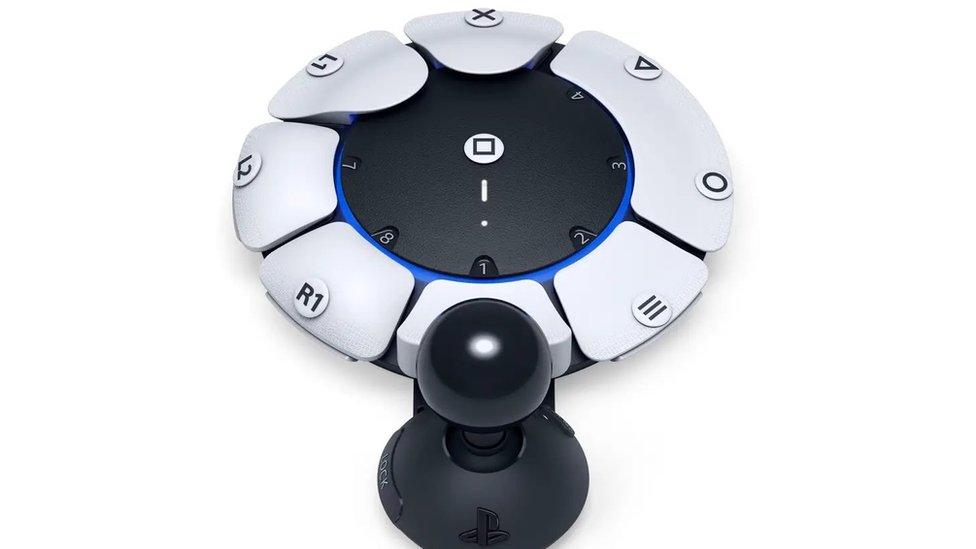Quadriplegic cerebral palsy: Mum sees son walk for first time
- Published
"When you see their faces, you can't put it into words... we still tear up"
Lynsey Summers says she dreams about seeing her son walk.
Jacob, 19, has quadriplegic cerebral palsy, which affects his arms and legs and means he uses a wheelchair.
But thanks to a new machine at his school, Jacob has now stood upright and moved his legs for the first time.
"I have dreams where he walks and that's emotional, so to actually see that start to be real, I suppose it's the closest I can ever hope for a dream coming true," said Lynsey.
"It's a sensation he could never have experienced before."
Jacob, from Cardiff, cannot sit unaided so most of his movement has traditionally come from physiotherapy sessions.
"We'd try to do a little bit in the morning, just to loosen him up," Lynsey said, describing doing ankle turns and leg movements with him, which could be quite "stilted".
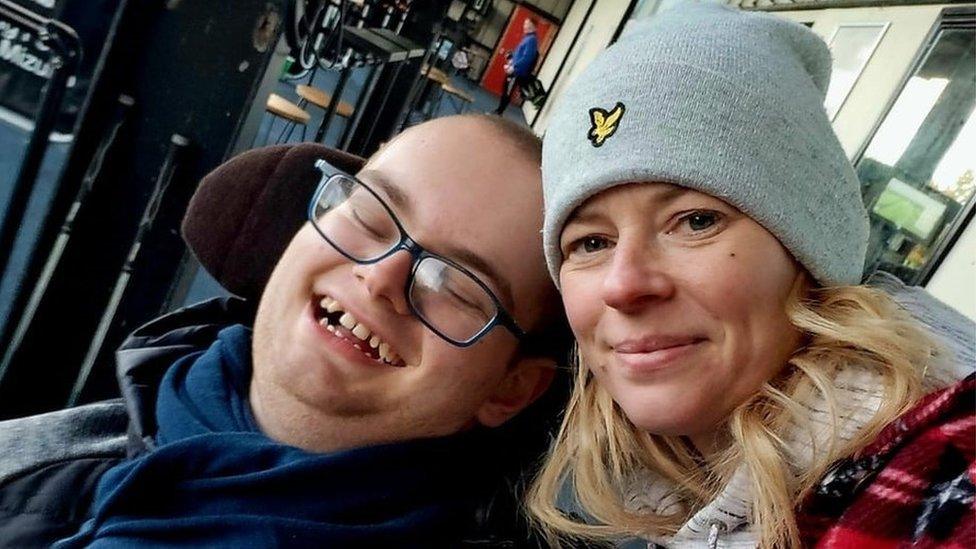
Lynsey said you can see how happy it makes Jacob to be able to move his legs while using the machine
"It's also very tiring for the person doing it, so it can only be done for a short time, especially because Jacob's an adult now," she added.
"So to have a machine he can go in for a longer period and give him the sensation of walking that he's never experienced before... he goes on there and you see the smile on him."
Ysgol y Deri is a special school in Penarth, Vale of Glamorgan, which caters for students aged between three and 19 with a range of learning and physical needs and autism.
Physiotherapists at the school trialled the Innowalk device to see if it could help pupils.
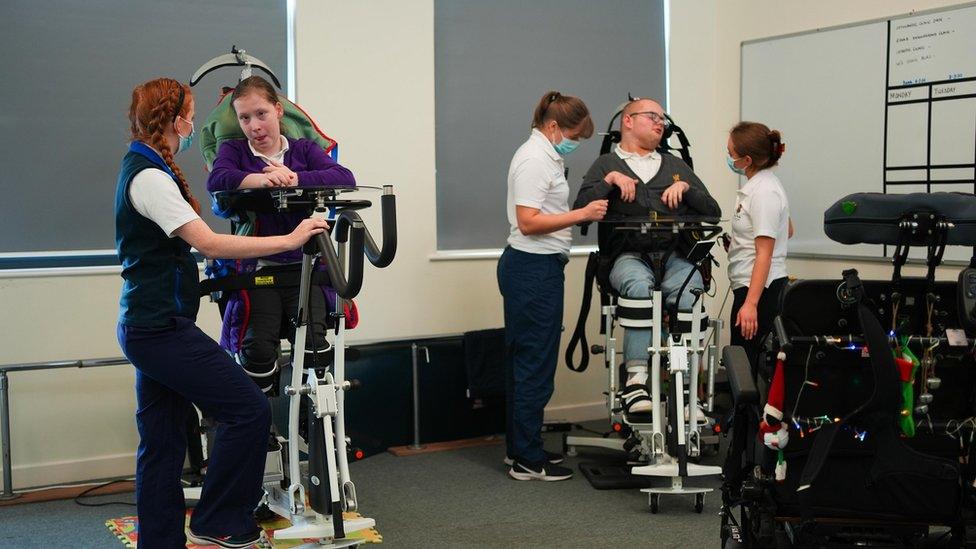
It looks a bit like a cross trainer that you would find in a gym, but with lots of extra support
Eighteen months on, paediatric physiotherapist Amelia Stubbs, 31, said they had seen real benefits for pupils.
"In the basic terms, it's their wellbeing," said Ms Stubbs.
"They're up and doing something active, which they wouldn't normally be able to do.
"We notice they're much happier when they come to physiotherapy and really like engaging with us."
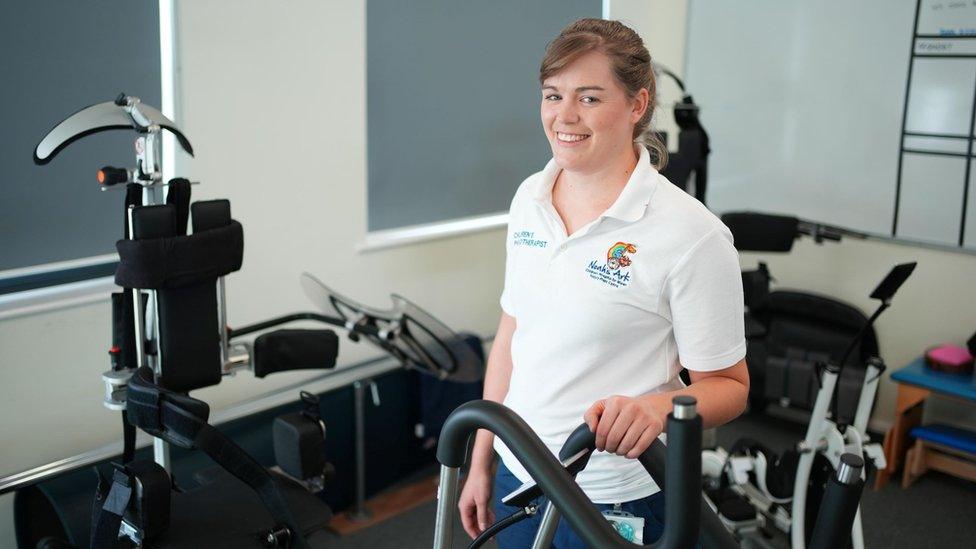
Amelia Stubbs has been using the Innowalk machine with pupils like Jacob to give them the sensation of walking
Lynsey said Jacob looks forward to his sessions: "He gets an endorphin rush when he's been on it, so he's in a much better mood.
"He's happy and jokey. He sleeps really well when he's been on it. It helps with his personal care, bowel movements and achy-ness in his muscles. He really, really enjoys it."
Fellow pupil Seren, 14, also enjoys using the device.
"It's actually kind of nice. It's fun if you have something fun to do in it," she said.
The school's assistive technology technician, Aaron Hawxwell, had the idea of introducing virtual reality (VR) headsets to the experience.
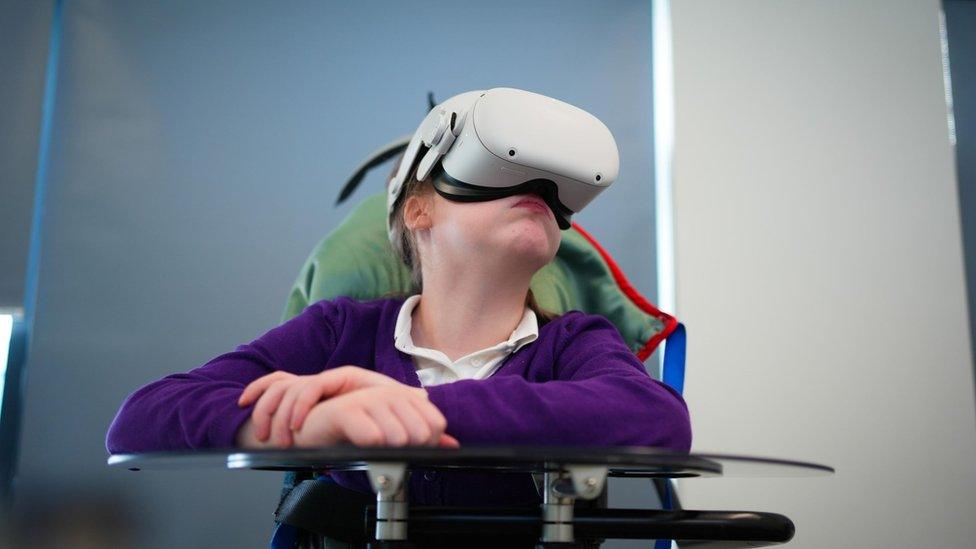
Virtual reality (VR) is used to offer a realistic walking experience
Using the perspective of children who used to be able to walk but cannot any longer, they tested a series of VR videos to determine which one offered the most realistic walking experience to the user.
"Some of the kids who can't talk, when you see their faces... you can't put it into words," said Mr Hawxwell.
"Even us, who've been here a long time, we still tear-up. You go home and think about it. It just makes your day."
The school chose to purchase two machines after seeing positive results.
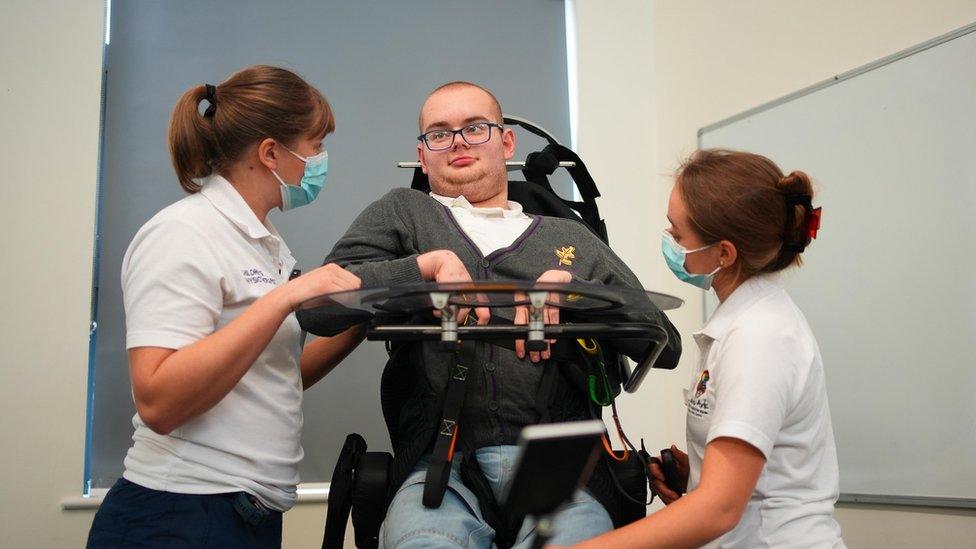
Nineteen-year-old Jacob Summers has stood up and moved his legs for the first time thanks to a machine bought by his school
"For us, we need to invest as much in pupils' wellbeing as we do in their education," said head teacher Chris Britten.
"When the kids are well and they're in a good place they can learn, and that benefits all of us - and that means our whole community, not just me, not just the teachers, but the parents as well and their families."
The second series of A Special School - based at Ysgol y Deri - begins on Monday at 20:30 on BBC One Wales and BBC iPlayer.

A SPECIAL SCHOOL: Behind the scenes at a school like no other
ICONIC WELSH PEOPLE, PLACES AND THINGS: Kiri Pritchard-McLean unearths the best clips from the BBC Wales archive


Related topics
- Published1 January 2023
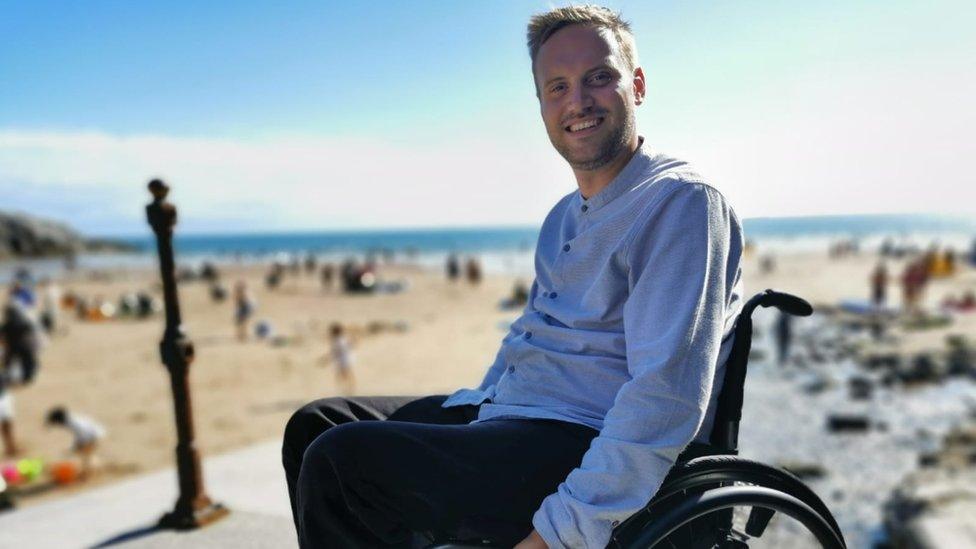
- Published9 January 2023
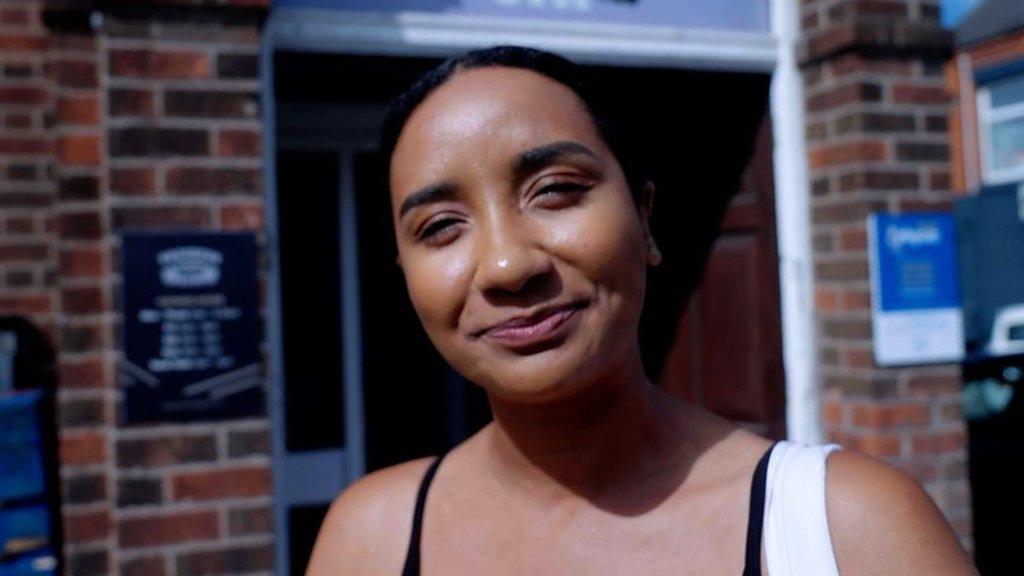
- Published15 December 2022
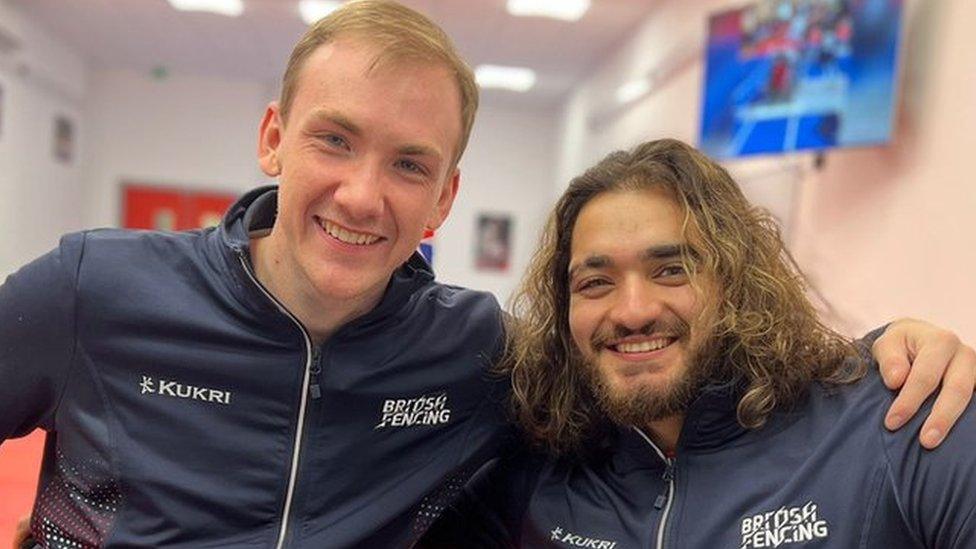
- Published3 December 2022
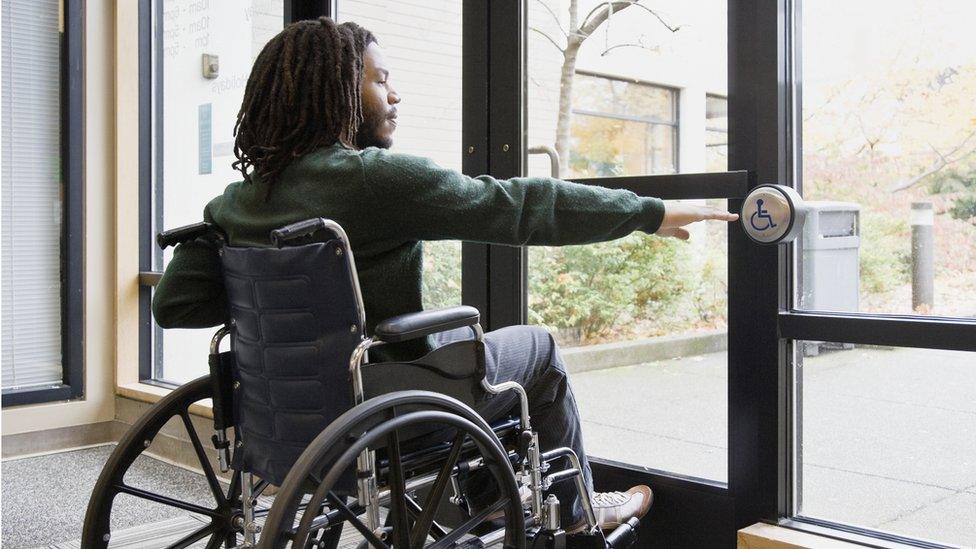
- Published5 January 2023
